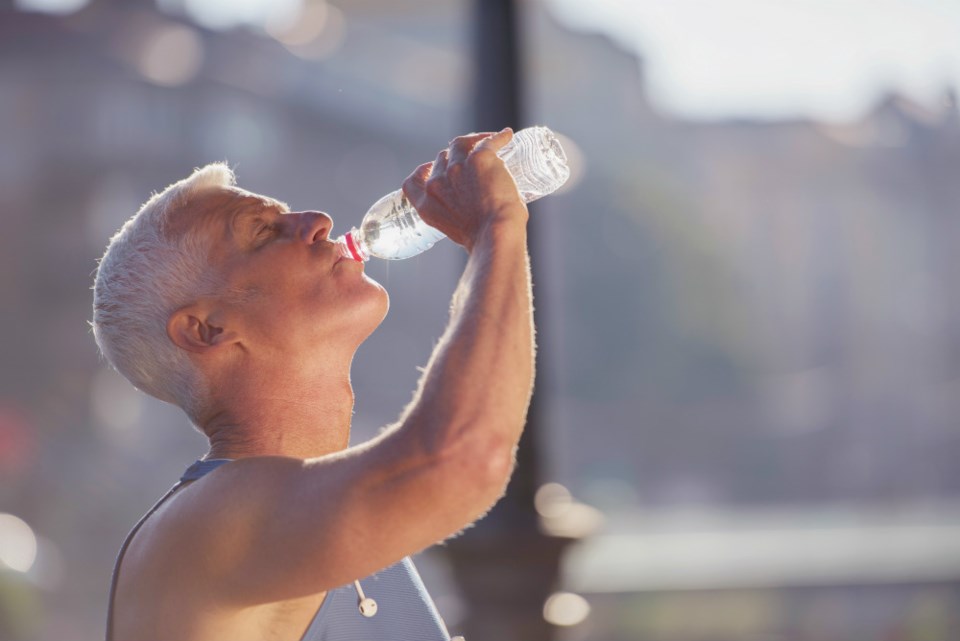 Photo Shutterstock
Photo Shutterstock
The BC Care Providers Association is reminding the public to check in on their elderly friends, relatives and neighbours as the hot weather can leave them more vulnerable to heat illness.
"For seniors living at home or in care, regular visits by family members, neighbours and friends go a long way," says BCCPA CEO Daniel Fontaine. "Visitors can help identify signs of illness that could be missed over the phone. It's important to see how they’re doing and help them to get to places they can cool off."
Temperatures are expected to reach a high of 30 degrees Celsius in Vancouver on Sunday with wildfires burning in the southern Interior and in Richmond.
Seniors are at a greater risk of heat illness because their bodies cannot adapt to sudden changes in temperature quickly enough and may be less sensitive to these changes -- not realizing that they are overheating.
Heatstroke can cause damage to the brain, heart and kidneys and can be fatal.
Here are a six tips to reduce the risk of heat illness among seniors:
- Take note of the seniors' health conditions and medications. Check if they're taking any prescription drugs that could impair their ability to regulate body temperature.
- Watch out for signs of overheating such as extreme thirst, dizziness, headache, nausea, cramps, fatigue, and cold, clammy skin. Overheating is not very dangerous on its own but can quickly lead to heatstroke. Symptoms of heatstroke include a body temperature of 104°F or higher, inflamed skin without sweating, rapid pulse, headache, nausea, dizziness and unconsciousness.
- Minimize sun exposure. If it’s hot outside stay indoors in a cool, air-conditioned environment. Keep your home cool by blocking out the sun with blinds/solar curtains, and keeping windows open at night.
- Dress appropriately. Wear light-colored clothing made of natural, breathable fabrics like cotton. Hats and scarves should be used to protect against the sun.
- Stay hydrated by consuming enough water, juice, fruits and vegetables. Avoid alcoholic beverages, coffee and cola.
- Exercise indoors on warm days. Seniors should stay active but avoid overexerting themselves.
The BCCPA says if someone finds a senior exhibiting signs of heat illness that can’t be resolved by moving to a cooler place they should call 911 immediately.


